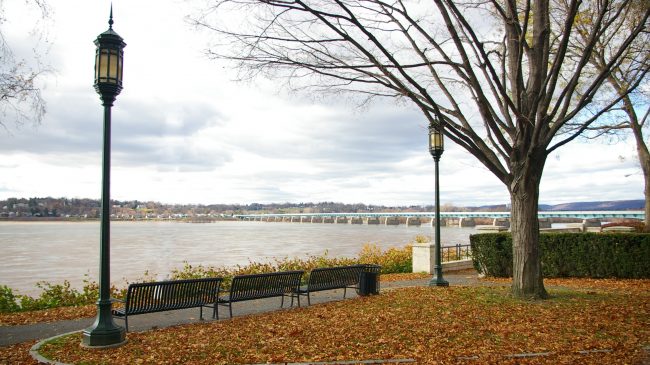The cost and management of aging municipal water systems continue to plague many U.S. cities and towns. Facing costly environmental issues with aging infrastructure reaching the end of its lifespan, plus the ongoing costs of maintaining systems, many municipalities are examining public-private partnerships and other options.
Harrisburg, Pennsylvania, for example, is considering whether or not to sell its combined water/wastewater systems to a private operator. The city announced in September it would invite four firms to make bids to buy the combined systems.
If Harrisburg decides to keep the combined systems’ ownership and operation in Capital Region Water’s (CRW’s) hands, it would likely have to raise fees dramatically on customers or be unlikely to be able to finance needed improvements to prevent a serious environmental problem that unfortunately is too common in the U.S.: the dumping of raw sewage into the nation’s waterways. When heavy rains overburden treatment facilities, outfalls must empty waste into waterways, a process known as “combined sewer overflow.”
Harrisburg has a $300 million plan to help address the problem, but the U.S. Environmental Protection Agency (EPA) says more work is needed since the plan is projected to eliminate only about 60 percent of the raw sewage dumping into the Susquehanna River and other nearby waterways. Samples taken from those waterways have been shown to contain as much as 10 times the level of e. Coli that is deemed acceptable by the EPA. Even if the plan for this problem had been fully implemented last year, it still would have allowed around 840 million gallons of the Harrisburg region’s untreated sewage to spill into rivers and creeks, which empty into the Chesapeake Bay.
Of course, CRW’s systems also contain lots of old pipes in need of replacement, with some dating back to 1839. While CRW has made over $100 million in improvements over five years while trying to map out the system, there’s no dedicated revenue source to ensure repairs and improvements can continue.
To pay for the city’s plan, CRW plans to charge customers an annual stormwater fee of around $75 but getting the system in compliance with the EPA’s standards would take something more expensive and CRW lacks the resources to do it alone. A 2015 agreement between CRW and the EPA to help end the sewage spillage has resulted in the EPA treating CRW with kid gloves, only penalizing 20 percent (26 of 131) of the water management agency’s violations over the ensuing three years.
Given CRW’s inability to solve the problem by itself, the prospects of private sector participation in fixing the problem are appealing. A long-term lease or sale appears the best path forward for CRW. Over the long-term, CRW has shown that it does not possess the ability to fix the city’s water issues alone, much less ensure Harrisburg won’t be facing similar problems down the road. The best results are likely to come from a private partner with the institutional capacity to comprehensively tackle Harrisburg’s problems.
While critics of private water management are understandably worried about higher rates potentially being charged to customers, it is important to note the reasons for those possible rate increases. First, water agencies, like CRW, often delay or neglect to make needed investments in maintenance and upgrades. If CRW has consistently made the investments and improvements the system needed, customers would have likely experienced gradual rate increases to fund those projects. Instead, they let the system deteriorate, meaning the needed improvements to the systems become larger and more expensive.
Harrisburg’s water management problems, which affect not only local citizens but millions more downstream, will take large amounts of spending and expertise that CRW is unlikely to be able to successfully manage alone. With the water and wastewater system’s poor environmental conditions spilling billions of gallons of sewage, selling or leasing the city’s water systems appears to be the best way to solve the problems as quickly as possible.

